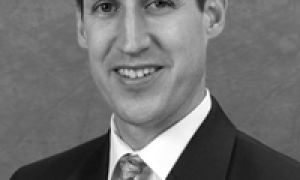For anyone following the Iraq war, now may be the time to take off those rose-colored glasses. According to a recent Zogby poll, 72 percent of U.S. troops say it's time to withdraw from Iraq. Another stunner is that only three in five soldiers in Iraq have a clear sense of the mission. Ouch!
Despite the wide range of opinions and loud voices about America's role in Iraq, there's a real hunger for authenticity that only the troops on the ground can provide. As a veteran, I have been hoping that a pollster would take the obvious step of asking our troops for their opinions, and I think Zogby International deserves credit for making the effort.
But as an economist, my appreciation eroded sharply when I took a closer look.
The survey contains 24 questions. It was given secretly during late January and early February to an unknown number of American troops serving in Iraq, although we are told that 944 respondents were included. If all the guidelines for random sampling were met (they weren't), the reported margin of error would be plus or minus 3.3 percent.
The unforgivable flaw in Zogby's survey is the biased phrasing of its questions and answers. Two of the most provocative results are based on questions with no middle ground. It's like a multiple-choice test with no right answers.
For example, the widespread finding that three in four soldiers think the United States should withdraw from Iraq within a year has only one option for troops who think otherwise: stay indefinitely. This infamous question asks, "How long should U.S. troops stay in Iraq?" But the first three answers are not phrased in terms of staying, they are phrased "withdraw...," "withdraw..." and "withdraw... ." Where are the options for troops who think the United States should stay for "one to two years" or "two to five years"? Zogby omits such nuance. It's stay or go. Now or never.
The smart troops who perceived this false choice probably set the clipboard down and walked away at that point. That leaves us with a biased respondent pool.
Another question asks for a description of "your understanding of the U.S. mission in Iraq." Two choices describe the mission as clear, and four choices describe it as unclear.
More damning, John Zogby himself misrepresented the phrasing of one of the questions in an op-ed. This may seem like nitpicking, but if half a man's family say they want "chicken" for dinner, and he reports those votes as "nonvegetarian," he is not exactly being honest. In just this way, the poll asked the soldiers to rate seven different "reasons for the Iraq invasion." It is a question about prewar justification, not the postwar occupation. Yet Zogby described their answers as a description of "the U.S. mission." If that's the question he wanted to ask, he should have asked it that way. Polling is a science. Words matter.
The biggest question we should all be asking Zogby is not about the questions that were included, but about those that weren't. Nowhere in the survey results do we see assessments of the U.S. mission. Has it been a success or a failure? How so? Nowhere do we see questions about morale, about progress in killing terrorists, about the state of the insurgency, about the prospects for democracy and economic growth in Iraq. There are questions aplenty on napalm, interrogation, and (I'm not kidding) doubling the number of bombing missions.
Did Zogby dare to ask anything that might result in good news?
Keep in mind that the men and women in uniform are limited by law from making political statements. If troops are given a chance to express themselves anonymously and fairly, that's great. They are probably the best barometer of how the mission is going, and how it can be improved. But this Zogby poll isn't a barometer. It is (a) biased, (b) dishonest, or (c) all of the above.
Don't like those options? Neither do I. But that's all they gave us.
I remain thankful that Zogby made this effort, and I hope they will try again in a manner that is (d) insightful, (e) comprehensive, and maybe even (f) irrefutably profound.
Tim Kane ([email protected] ) is an economist and Bradley Fellow in the Center for Data Analysis at the Heritage Foundation, and a veteran Air Force officer.
First appeared in Philadelphia Enquirer



